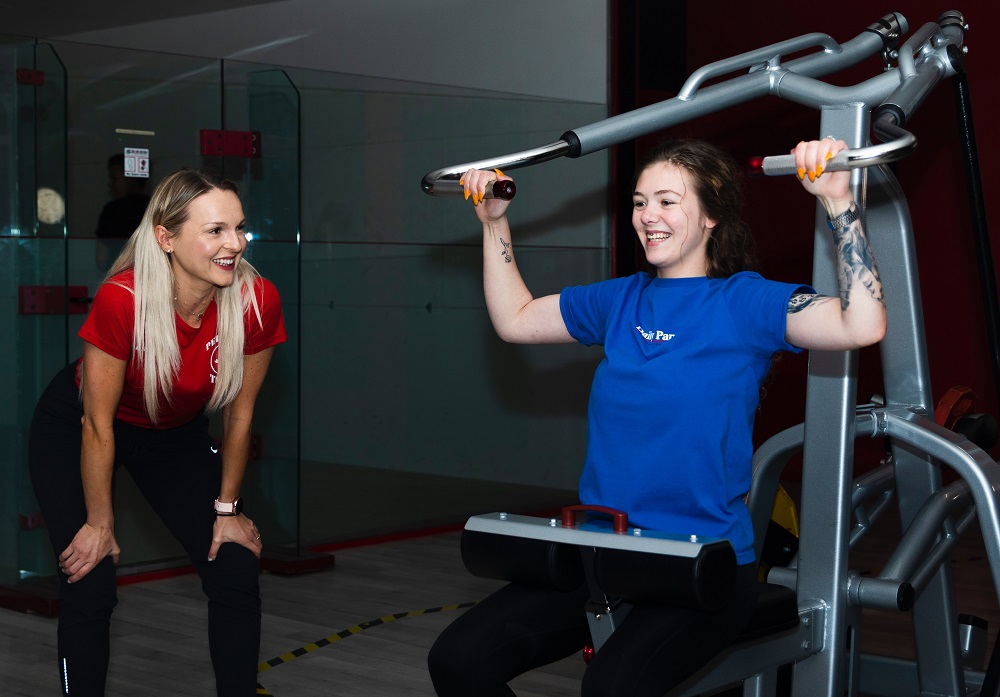Exercise physiology is an allied health service that can help to achieve your NDIS goals. Exercise is important for keeping your body moving, maintaining muscle strength and fitness as well as your overall health. Exercise physiology can assist managing chronic disease and help people living with a disability.
Benefits of Exercise and Physical activity
- Increase fitness and endurance
- Improve strength, flexibility and posture
- Improve balance, coordination and prevent falls
- Reduce spasticity and contractures
- Improve sleep quality
- Reduce symptoms of depression or anxiety
- Reduce or manage pain
- Improve functionality, independence and quality of life
What is an Exercise Physiologist?
Exercise Physiologists specialise in clinical exercise interventions for persons at high risk of developing, or with existing chronic and complex medical conditions and injuries (ESSA). Their role is to assess your health and fitness to then identify activities or lifestyle changes that could support you to reach your goals. Accredited Exercise Physiologists (AEP’s) are accredited with Exercise and Sports Science Australia (ESSA) and can register as a provider with the NDIS. They develop individualised exercise programs for people living with a disability.
The NDIS and Accredited Exercise Physiologists
NDIS funding can be allocated for exercise physiologists to treat the following:
- Multiple sclerosis
- Intellectual disability
- Physical disability
- Muscular dystrophy
- Stroke
- Traumatic or acquired brain injury
- Spinal cord injury
- Cerebral palsy
- Chronic pain
- Chronic fatigue
- Fibromyalgia
Your NDIS Plan and Exercise Physiology
You’re most likely to need exercise physiology services as part of your NDIS plan if:
- Your goal relates to moving more independently, building strength, participating in community sports or improving fitness.
- You are at risk of developing or have an existing condition that impairs physical movement.
- Your disability makes it hard to maintain good health or a healthy weight
Funding for exercise physiology can be arranged under 1 of 2 budget areas in your NDIS Plan:
- Capacity building – improved daily living
- Capacity building – Improved health and wellbeing
What to expect when you see an Exercise Physiologist
Your exercise physiologist will commence with an initial assessment. This will entail a series of questions and assessments to gain an understanding of your health, fitness and ability. They will look at things like:
- How you move
- Your posture and balance
- Fitness and strength
- Respiratory and cardiovascular function
- Diet and lifestyle
- Current medications
- Limiting factors or barriers
Once your exercise physiologist has completed their assessment, they will then provide education and advice on an exercise program to suit your needs. They will set a plan that includes a mode, type, frequency and duration of specific exercise to achieve your goals.
This may include:
- Hydrotherapy
- Resistance exercise
- Cardiovascular endurance exercise
Each exercise program is individually tailored to ensure a safe, enjoyable and goals-based program.
To book in with one of our accredited exercise physiologists call us on 5535 5218 or Book Online.
Gold Coast Physiotherapy and Allied Health at Burleigh Heads and Broadbeach
References and Further Reading
https://activeability.com.au/exercise-physiology/?gclid=Cj0KCQjwwLKFBhDPARIsAPzPi-KXS50MRkKrDKspVVanT65i_tN-6FWvD9nBET_MPHZLiy8KO8PDvxoaAk_hEALw_wcB
https://www.ndp.org.au/images/NDP_Navigation/AlliedHealthHub/Resource_Files/Jacinta-Bonaventura-NDIS-presentation-.pdf
https://www.leapin.com.au/news/exercise-physiology-help-ndis-goals/








